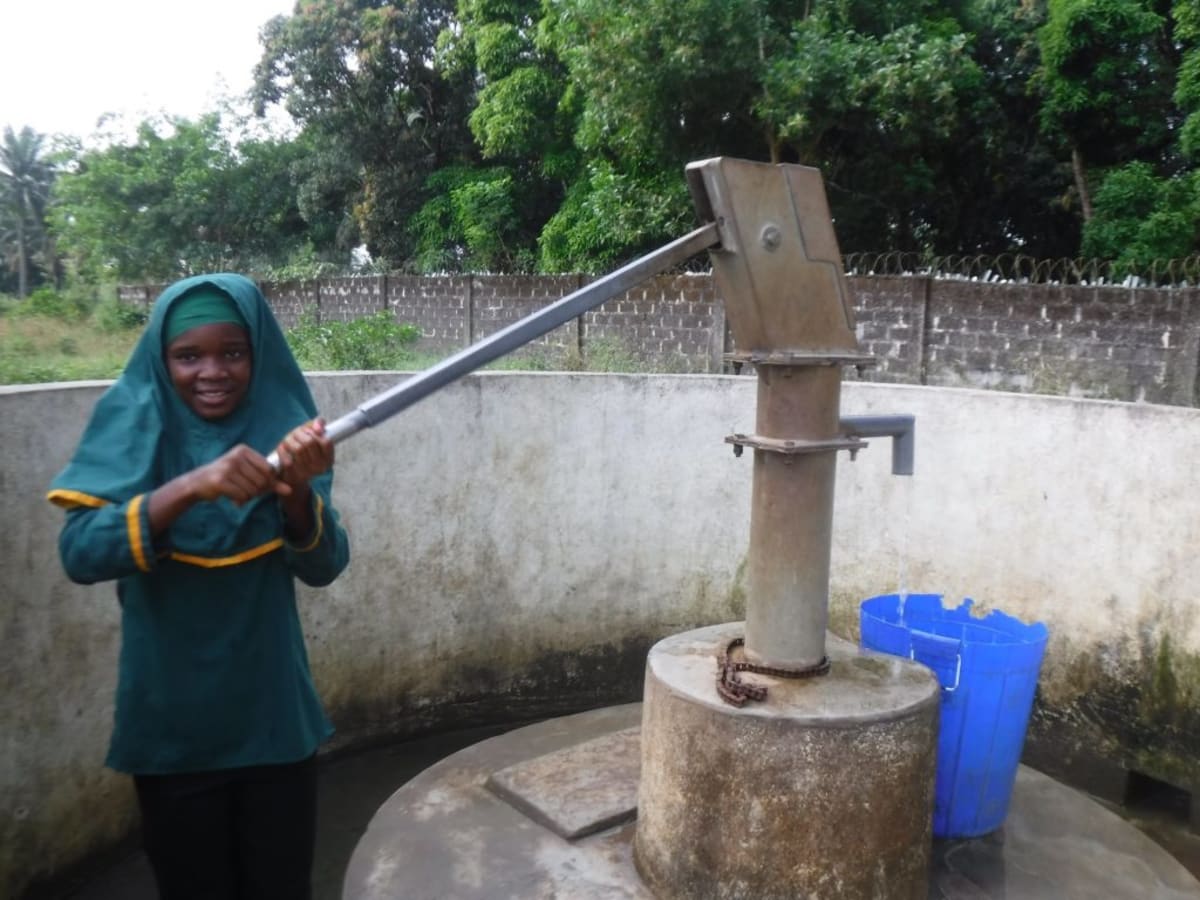Ahmadiya Muslim Primary School is located in a relatively sparsely populated area about three miles from our office. Only recently are new homes being built in this area. The houses surrounding the school are constructed of both mud blocks and cement. The community donated the school land.
The American Embassy in Freetown built the School with the help of Dr. Mohamed Lamin Kamara, the Minister of Foreign Affairs and International Cooperation, under the watch of Dr. Ahmed Tejan Kabba, who wrote to the American Embassy to assist his community with a school. The letter was approved, and the Embassy completed the project at the end of 1995. After the three-classroom project was completed and handed over to the Ahmadiya Muslim Missionaries to run the school, the school was later named after them.
The school initially enrolled just three students. Today, some 486 students attend, and there are 14 teachers and staff. The school has also established a pre-school to cater to young children because they do not want to neglect the little children in this community.
The school's hand-dug well was constructed a few years ago. Over time, it fell victim to the effects of climate change experienced across the region. Our teams in Sierra Leone have observed that the water table in the region has dropped in recent years, rendering hand-dug wells less reliable than much deeper borehole wells.
The school used to fetch their water at the stream located a mile away from the school. If the well is not producing enough water, however, students will return to the open source to get water. It is a great risk for students to fetch water from the stream since they have to leave campus alone, and the water itself is not safe for drinking. Students then not only miss class due to the walks to the stream, but they also miss it when they become sick with waterborne diseases from drinking the stream water. When this happens, students' health and academic success are compromised.
Here’s what we’re going to do about it:
Well Rehabilitation
The well marked for this overhaul needs deepening to ward off the impacts of climate change. Our team will remove the pump, and a hand auger will be lowered inside and powered by a drill team. This hand auger will allow the team to drill several meters deeper to hit a sufficient water column to ensure the well supplies water throughout all seasons.
As the team drills, the casing will be installed, transforming the bottom of this hand-dug well into a borehole. PVC piping will connect this lower system directly to the pump, a construction that we know will also improve the quality of water.
Once this plan is implemented, everyone within the community will have access to safe drinking water, even through the dry months.
Hygiene and Sanitation Training
We will offer hygiene and sanitation training sessions for three days in a row.
After our visit, the hygiene and sanitation trainer decided it would be best to teach community members how to build a tippy tap (a hand-washing station built with a jerrycan, string, and sticks). They will use these tippy taps for handwashing demonstrations and will also teach about other tools like dish racks and the importance of properly penning in animals.
This training will also strengthen the water user committee that manages and maintains this well. They enforce proper behavior and report to us whenever they need our help solving a serious problem, like a pump breakdown.

 Borehole Well and Hand Pump
Borehole Well and Hand Pump


































